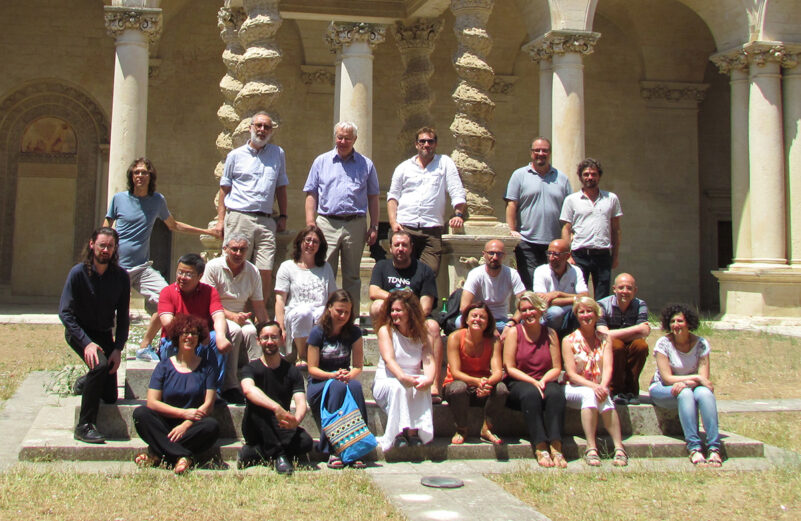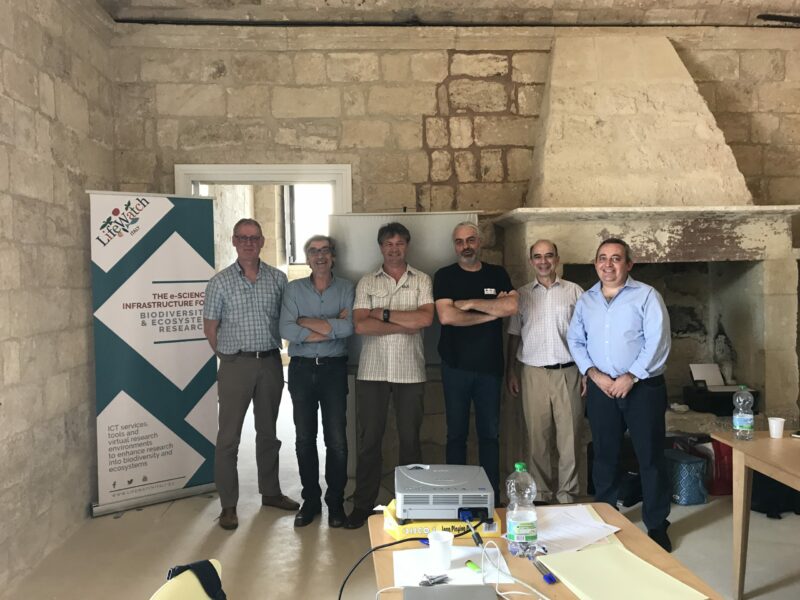From 11 – 14 July 2017, thirty researchers and experts from all over Europe gathered in Lecce for the workshop Ontology & Semantic Web for Research, hosted in the fascinating Monastero degli Olivetani (University of Salento).
The workshop, organised by LifeWatch ERIC, LifeWatch Italy and EUDAT*, constituted a great chance for academic, research infrastructure and business professionals to exchange their views on standards, approaches and tools to improve data sharing and guarantee their interoperability, presenting their theoretical and applicative works, sharing experiences and innovative solutions, with a specific focus on biodiversity and ecosystems.
The workshop revolved around four sessions dealing with key challenges of the field, whose outcomes are available in its freshly published dedicated report:
- Usages of semantic resources in Research Infrastructures
The representatives of AnaEE, PANGAEA, LifeWatch Italy, AquaDiva Project, EnvThes and Vi-SEEM have introduced the semantic approaches undertaken by the different Research Infrastructures and the main European initiatives, introducing the developed semantic resources.
- Alignment of vocabularies and ontologies
Ontology/Vocabularies alignment is the process of determining the commonality between classes and concepts from different Ontologies/Vocabularies (Adam M.; Vodden, Peter N. 2016). After a presentation of each experience with the alignment, all participants have agreed to work on a specific study case (i.e. Phytoplankton) described by LifeWatch Italy. Each Research Infrastructure/Research Group will model the study case with the developed Ontology.
- Semantic interoperability and discoverability
The session aimed at discussing about two major issues impacting the development of semantic tools and services: the discoverability of vocabularies and vocabulary services, and the interoperability of vocabulary services APIs.
- Services for semantics
The participants have introduced the following services/products: Jena OntologY Customization Engine (JOYCE), a tool for selecting and customising ontologies, and enabling their re-use; EDI, a web-based tool created in the context of RITMARE initially intended to assist metadata creation; the CLARIN component metadata that provides a framework to describe and reuse metadata blueprints; OIL-E, a semantic model architectural specification; IndexMed infrastructure to extract valuable information using data mining in ecology.
*EUDAT is a European project (FP7 then Horizon2020) offering services for the management of heterogenous research data and stocking resources, supporting the researchers’ community through a geographically distributed netwok active in 15 European countries and hosting data on the most powerful European supercomputers. For more information, please visit EUDAT.

